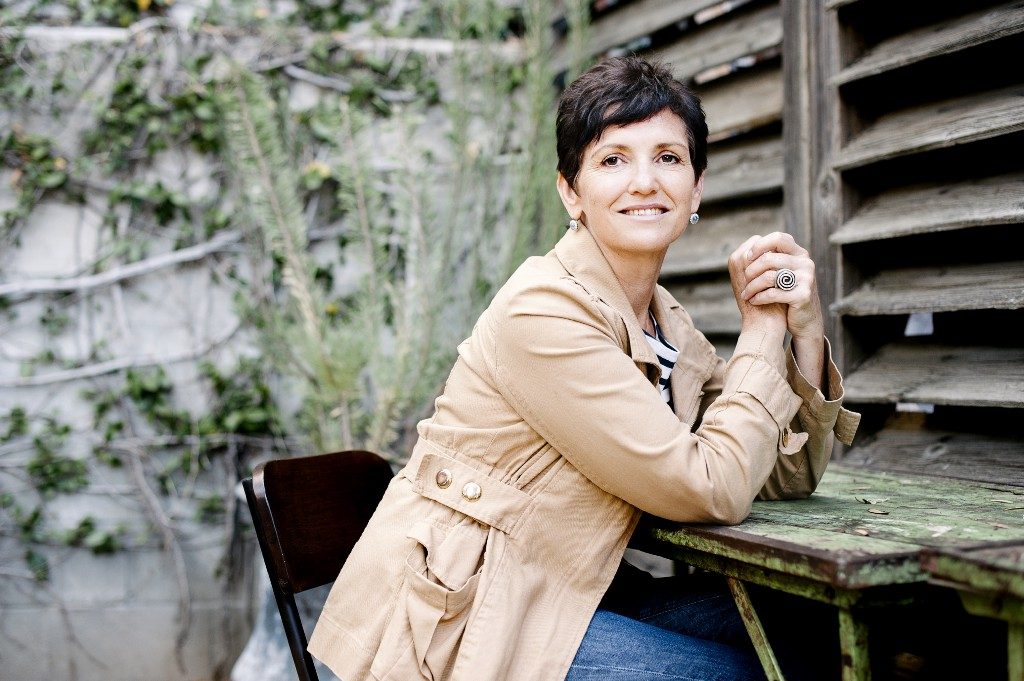Last May, The New York Times published a
15-page letter from the ACLU to the EEOC and two California state agencies
urging them to investigate Hollywood for sex discrimination against women
directors.
Just months earlier, NY Times film critic Manohla
Dargis wrote that our industry’s “refusal to hire more female directors is
immoral, maybe illegal, and has helped create and sustain a representational
ghetto for women.”
Her article came on the heels of a USC study showing that only 1.9% of directors of
the top-grossing 100 films of 2013 and 2014 were made by women. That means 98.1% of
America’s top studio features are coming from the perspective of men.
Two weeks ago, the EEOC stepped up to the plate. Women
and Hollywood was the first site to break the news, and on October 2, The
Los Angeles Times ran the headline “The Hollywood gender discrimination
investigation is on: EEOC contacts women directors.”
This news is rocking the industry, and last week I
became the first female director to be interviewed by our nation’s highest federal agency charged with enforcing Title VII, America’s equal-employment-opportunity
law.
According to EEOC.gov, “The EEOC has the authority to
investigate charges of discrimination against employers. … Our role in an
investigation is to fairly and accurately assess the allegations in the charge
and then make a finding.”
If the EEOC finds evidence of systemic
discrimination against women directors, it has the authority to file an
industry-wide class-action lawsuit for Title VII violations against women
directors.
Title VII was fought for and won in 1964. We don’t
have to fight this battle anymore, but we do have to demand that the U.S. entertainment industry obey this fundamental civil right law.
Female students make up 50% of graduating classes in film schools (though it is currently unknown which disciplines they pursue). Once they step onto the professional playing field, though, statistics show that women directors face worse
employment discrimination in Hollywood than in any other industry in America.
Women make up 51% of our population. Yet in 2014, women directed just 14% of TV episodes and only about 4% of all feature films produced by the six major studios and three mini-majors are directed by women.
And what about women of color? They make up 19% of
the U.S. population, yet direct just 2% of TV shows and less than 1% of studio
feature films. It’s time we asked why the DGA-studio diversity agreements are
serving minority men, who make up about 18% of the U.S. population and directed about 18% of TV episodes last year — but failing women utterly.
At the EEOC, I was just the first of many women directors to be
interviewed. It is crucial that more women come forward to speak out,
especially women of color. There is power in numbers. The sooner we can break
the long silence and isolation of women directors, the sooner we can work toward change.
Women directors can log on to ACLU.org and respond to the “Tell Us Your Story” request to describe (anonymous, if preferred) how they may have
been shut out of the directing profession.
Click here to participate: https://action.aclu.org/secure/my-story-woman-director
Already, thanks to an immensely positive response
by the U.S. media to the new EEOC action, more women have been coming forward. It’s
easy to speak out and help give the next generation of women
filmmakers a fighting change to contribute their voices to our movies and TV
shows.
Our media is our nation’s most influential global
export. Feature films help form the very voice of our civilization. If women
are refused entry into the directing profession, their voices are censored and
silenced. The American people on both sides of the aisle seem to support
equality and freedom of speech.
It is incumbent upon our state and federal agencies
to balance the playing field for women directors — a move that could spearhead change
for women in all professions in our industry. The timing may be just right to
demand an end to this most egregious of all examples of industry-wide sex
discrimination in our nation.
History shows us that in early Hollywood, many more
women held high positions than today. Yet EEOC efforts since the ’60s have
failed to solve the problem. The only action that has successfully resulted in
change was the 1983–85 DGA-led class-action lawsuit against several studios on
behalf of women and minority DGA members.
Even though the DGA was ultimately disqualified
from leading the class, which ended the case, that legal action moved the
employment numbers of women directors up from .05% to 16% in just ten years,
from 1985 to 1995.
From 1995 to the present, however, the results of
DGA-Studio diversity programs, which began after the 1985 lawsuit, have been
dismal at best.
We have an ever-growing pool of women directors who are trained, but
can’t get hired. They become lost generations. The U.S. media is explosive right
now with new forms of content and distribution platforms emerging every day. We
need now, more than ever before, to demolish the obstacles that continue to shut women directors out.






